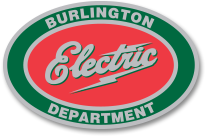 But, are they really the first – and are they the only one?
But, are they really the first – and are they the only one?
By George Harvey
Burlington, Vermont has been much in the news of late as the first 100% renewable-powered city. One question that was asked widely, and answered often was, “Is it really the first city to have 100% renewable power?”
The short answer is, “Yes, Burlington is the first.”
The long answer is a bit more complicated. Part of the problem is the question of what is meant by 100% renewably-powered. Does it count that renewable energy credits are included in the mix of power sources? Does it count if the power comes from biomass, which really has to be sustainably grown to be renewable? And come to think of it, what if the city has some anti-renewable holdout, who can maintain some devious way to keep using fossil fuels, despite the higher cost, just to spoil the neighborhood?
Another question is what is meant by the word “city.” A number of cities in the United States are 100% renewably powered, by some accounts. Look at the small print, however, and we discover that what is meant is not the city and all its consumers, but the buildings and other infrastructure that are municipally owned. This is admirable, and a number of places should be praised for it, including Ithaca, New York, Scituate, Massachusetts, and others. But it is a lesser goal than what Burlington achieved.
A really good question about what is a city arises from the example of Greensburg, Kansas, which has been the subject of one article in Green Energy Times. Greensburg is without question 100% renewable. In fact the residents seem to be gleeful when they explain to all comers that the city has been 100% powered by wind, 100% of the time, for several years. And under definition 1d in my Merriam-Webster’s Dictionary, Greensburg is a city, because it is chartered as a city. Nevertheless, definition 1a in the same dictionary says a city must be larger than a town or village, and the population of Greensburg in the last census was fewer than 900. Perhaps we should say they both deserve the title as the “first city” and the honor that goes with it, Greensburg by legal definition, and Burlington by common English usage.
There are news articles around about other cities that are going 100% renewable, including places like Palo Alto, California. Though Palo Alto did announce it would be 100% renewable by 2015, it did not formally become so until the city council approved the plan in March. Boulder, Colorado, is another city that is pretty far along, and a number of others, including San Diego have declared goals of freedom from fossil fuels and nuclear power.
In the Northeast, one city definitely worth mention is Greenfield, Massachusetts, which became virtually 100% renewably powered through community aggregation, an option that is available in that state. Under this system, the municipality contracts with electric suppliers for power, which is then supplied and distributed to residents by the local authority as a quasi-utility. The process is nearly invisible to residents, who pay very slightly less for 100% renewable power. Of course, they have the option of staying with the standard local utility, if they choose, and pay a little extra for non-renewable power. You can read more about Greenfield on page 12 of this issue.
Towns and villages could go 100% renewable with greater or lesser degrees of difficulty, according largely to state laws. Group net metering is done frequently in Vermont and Massachusetts, but New Hampshire and New York have working systems. The ease of dealing with the states’ laws varies. But such systems are intended for groups of people, rather than towns or cities.
There are other places besides municipalities that are worthy of note. Colleges and universities are especially worth mention, not the least of which is the University of Southern New Hampshire, in Manchester, on which we will most probably have an article in the near future.
Now that all the small print is exposed for those who feel compelled to read it, we are pleased to say, “Congratulations, Burlington.”
A website devoted to 100% renewable places is www.go100percent.org.








Leave a Reply